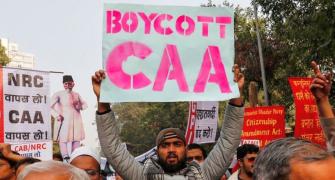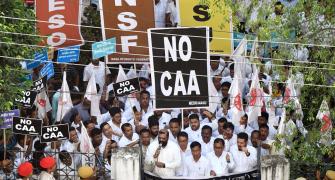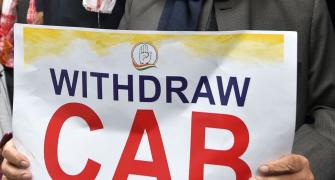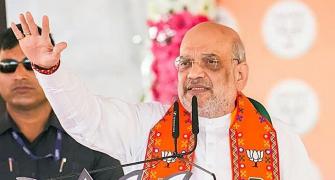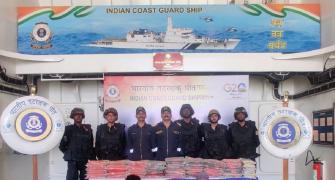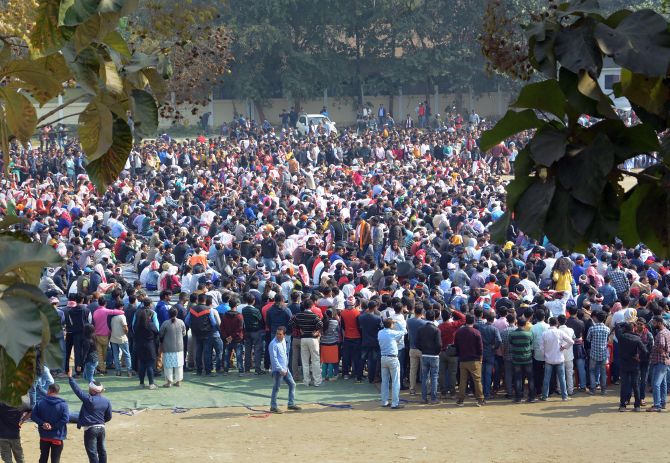The Supreme Court on Thursday directed the Centre and the Assam government to provide extensive data, including those on the number of Bangladeshi immigrants granted Indian citizenship in Assam between January 1, 1966 and March 25, 1971, while taking note of pleas that illegal immigration has impacted demography and cultural fabric of the border state.

While hearing as many as 17 petitions to examine the constitutional validity of Section 6A of the Citizenship Act relating to illegal immigrants in Assam, a five-judge constitution bench headed by Chief Justice D Y Chandrachud passed an order seeking details from the two governments by December 11.
”We are of the considered view that an affidavit be filed before this court by the Centre on or before Monday giving the data on the following aspects:
”1. The number of persons to whom citizenship has been granted under the provisions of Section 6A two namely with reference to the time period of persons who came into Assam between January 1, 1966 and March 25 March 1971,” it said.
The bench, also comprising justices Surya Kant, M M Sundresh, J B Pardiwala and Manoj Misra, sought details as to how many foreigners have been detected under the Foreigners Tribunals Order 1964 with reference to the above mentioned period.
”The estimated inflow of illegal migrants into India including but not confined to the state of Assam after 26 March 1971,” the bench said in its order.
The authorities will also have to provide information about the total number of foreigners tribunals set up by the Union government and the details of cases disposed of and pending before them.
The affidavit shall also indicate the average time taken for the disposal of cases and the number of cases which are pending adjudication before the Gauhati high court, the order said.
Acknowledging the submissions on the impact of illegal immigration on demographics and the state's cultural fabric, the bench sought to know the steps taken by the Centre to deal with illegal immigration into the northeastern states, particularly Assam.
The top court also sought information about the steps taken for fencing the border with Bangladesh and the estimated timeline to complete the exercise.
Earlier in the day, the bench asked the Centre why it had singled out Assam and excluded West Bengal from grant of citizenship under Section 6A of the Citizenship Act when the latter shares a much larger border with Bangladesh.
Observing that illegal immigration is a serious problem, the bench asked Solicitor General Tushar Mehta, appearing for the Centre, about what the central government was doing to safeguard the border.
”Why did you single out Assam when West Bengal shares a much larger border space with Bangladesh? Presumably the extent of migration in West Bengal would be even more significant. Did we have any cogent data to indicate that the extent of illegal migration in West Bengal was minimal as compared to Assam?
”What was the reason which prompted the Parliament to exclude West Bengal from the grant of citizenship? What led to the peculiar belief that this was the problem in Assam and not West Bengal? Why did we leave West Bengal alone?” it asked.
As the hearing commenced, the Centre clarified that the examination of the constitutional validity of Section 6A of the Citizenship Act has nothing to do with any other amendments to the law.
Mehta told the bench that the application of Section 6A is limited to only a specific period of time.
"I would like to begin with some factual clarifications. Your lordships are examining a limited question of constitutional validity of Section 6A. This is confined to a very few individuals during a particular period of time. This examination has nothing to do with any other amendment to Citizenship Act," he told the bench.
Mehta told the top court that the contentions of the petitioners like influx of immigrants from foreign countries, paucity of resources that were otherwise available to them before the migration happened are true.
"A person is deemed a citizen if his parents or any grandparents were born in undivided india. The category is very limited -- it applies in Assam, a limited geographical area. The category from which persons are permitted is only Bangladesh, a very limited area," Mehta said.
During the hearing, the CJI said there were people who benefited from the grant of citizenship under Section 6A.
”What happens to those who weren't granted the benefit of citizenship but are illegal immigrants? Nothing was done about them at all. Everyone who came between 1966-1971 did not get citizenship because for citizenship they needed to be detected. So, within that larger circle, there is a smaller circle of people who came to India but never got citizenship. What happened to those people?" the CJI asked.
The top court asked what was the Centre doing to control illegal immigration as the question was not just about the changing demography of Assam but also its existing resources.
”There are different layers to the problem. First, there is legality. We deal with illegal immigrants who are here with some due process of law. We are not some authoritarian country that picks them up and throws them out. We have to follow the rule of law because we are a democratic country. If you don't follow the rule of law, genuine people may be picked out and thrown out,” the bench said.
The apex court sought to know from the government what it was doing to ensure the country has an impermeable border.
”How much investment is the government of India making to ensure that the border becomes impermeable? What are the executive steps the Union government is taking? To what extent the border has been fenced? We want to know because this is a crucial problem independent of section 6A.
”We also understand the problem of this. Culturally, you're dealing with people who look exactly like you, speak the same language, they dress the same way. But what is the data with the government? What is the extent of illegal immigration post 1971?” the bench asked.
Mehta submitted he was only prepared with regard to issues related to Section 6A and he will file a detailed affidavit on the questions put forth by the bench.
”This is my answer, not the government's. As far as Bengal is concerned, the general discussion I had with officers is -- Assam faced the problem and raised it at the level for the simple reason that culturally Bangaladeshis and Assamese were so different, it was easy to identify.
”With Bengalis, their food habits, dressing, everything -- they mingle very easily. Because of that there may not be uproar. But that doesn't justify the government not taking steps. I must be ambitious,” he said.
Section 6A was inserted in the Citizenship Act as a special provision to deal with the citizenship of people covered under the Assam Accord.
It says those who came to Assam on or after January 1, 1966, but before March 25, 1971, from specified territories, including Bangladesh, in accordance with the Citizenship Act amended in 1985, and since then are residents of the northeastern state, must register themselves under section 18 for acquiring Indian citizenship.
As a result, the provision fixes March 25, 1971, as the cut-off date for granting citizenship to Bangladeshi migrants in Assam.

